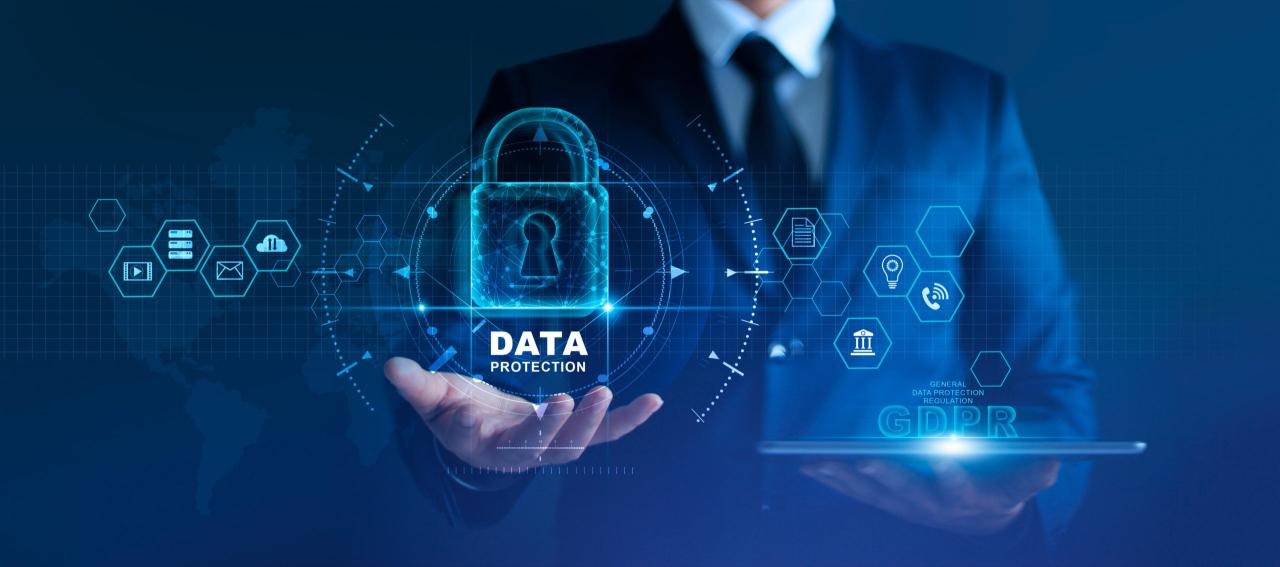The Role of Security in Online Payment Systems: How to Protect Your Data – The Role of Security in Online Payment Systems How to Protect Your Data is a critical issue in today’s digital landscape, where online transactions are integral to everyday life. As consumers increasingly turn to e-commerce, ensuring the safety of their financial information has never been more crucial. Understanding the various security measures available is essential for both businesses and individuals to protect against cyber threats and to foster trust in digital payment systems.
In this discussion, we will explore the various threats to online payment security, the importance of encryption, the role of secure payment gateways, and best practices for safeguarding personal data. With the rise of digital payments, being informed about these aspects can help users navigate the online marketplace with confidence.
In an age where technology permeates every aspect of our lives, digital literacy has emerged as one of the most crucial skills to possess. It goes beyond simply knowing how to use a computer or smartphone; it encompasses a variety of competencies that enable individuals to navigate the digital landscape effectively. From understanding how to communicate online to evaluating the credibility of information, digital literacy is an essential skill set that fosters not only personal development but also societal advancement.
What is Digital Literacy?
Digital literacy refers to the ability to locate, evaluate, use, and create information using digital technologies. This can include a wide range of activities such as browsing the internet, using social media, conducting online research, and engaging with various digital platforms. Essentially, it’s about being able to function and thrive in an increasingly digital world.
The Components of Digital Literacy: The Role Of Security In Online Payment Systems: How To Protect Your Data
Digital literacy consists of several key components:
- Information Literacy: The ability to find, evaluate, and use information effectively is critical. In a world overflowing with data, being able to discern credible sources from unreliable ones is vital.
- Communication Skills: Digital platforms have transformed how we communicate. Understanding the nuances of online communication—such as tone, etiquette, and audience—can significantly impact personal and professional interactions.
- Technical Skills: Proficiency in using various software applications, hardware devices, and online tools is foundational. This includes basic troubleshooting and navigating different operating systems.
- Social and Emotional Awareness: With the rise of social media, understanding the social implications and emotional aspects of digital interactions is more important than ever. This includes being aware of digital footprints and the potential impact on personal reputation.
Why is Digital Literacy Important?
In today’s digital world, the importance of digital literacy cannot be overstated. Here are some compelling reasons why it matters:
1. Empowerment and Opportunities
Digital literacy empowers individuals to access information and resources that can enhance their personal and professional lives. From online learning platforms to job searching, the internet is full of opportunities that can be accessed by those who are digitally literate.
2. Critical Thinking and Problem Solving
With a plethora of information available online, critical thinking skills are necessary to sift through data, identify biases, and make informed decisions. Digital literacy fosters a mindset of inquiry and problem-solving that is essential in various aspects of life.
3. Enhanced Communication
Effective communication is key in both personal and professional settings. Digital literacy allows individuals to communicate clearly and effectively through various channels, whether through emails, social media, or collaborative platforms.
4. Increased Engagement, The Role of Security in Online Payment Systems: How to Protect Your Data
In a digital age, civic engagement has also transformed. Being digitally literate enables individuals to participate in discussions, activism, and community-building online, contributing to a more informed and engaged society.
Challenges to Digital Literacy
Despite the clear benefits, there are significant challenges to achieving widespread digital literacy:
- Access to Technology: Not everyone has equal access to technology. Digital divides exist not just between countries but within communities, often leaving marginalized populations behind.
- Rapid Technological Advancement: The pace of technological change can be overwhelming. Keeping up with new tools and platforms often requires continuous learning, which can be a barrier for some.
- Information Overload: The internet is a vast space filled with both valuable and misleading information. Individuals can struggle to filter through the noise to find what is relevant and trustworthy.
Promoting Digital Literacy
To overcome these challenges, it is essential to promote digital literacy across various sectors. Here are some strategies:
1. Education and Training
Incorporating digital literacy into the educational curriculum at all levels can help equip future generations with the necessary skills. Workshops, online courses, and community programs can also provide adults with the tools they need to enhance their digital skills.
2. Community Initiatives
Libraries, community centers, and non-profits can play a crucial role in offering digital literacy programs. These initiatives can help bridge the gap for individuals with limited access to technology or training.

3. Collaboration with Tech Companies
Partnerships between educational institutions and tech companies can lead to innovative solutions that promote digital literacy. By working together, they can create resources that are accessible and user-friendly.
Conclusion
As we navigate through the complexities of the digital age, the importance of digital literacy continues to grow. It is a crucial skill set that not only enhances individual capabilities but also fosters a more informed and engaged society. By prioritizing digital literacy, we can empower individuals to thrive in a technology-driven world, ensuring that everyone has the opportunity to participate fully in the digital landscape.



